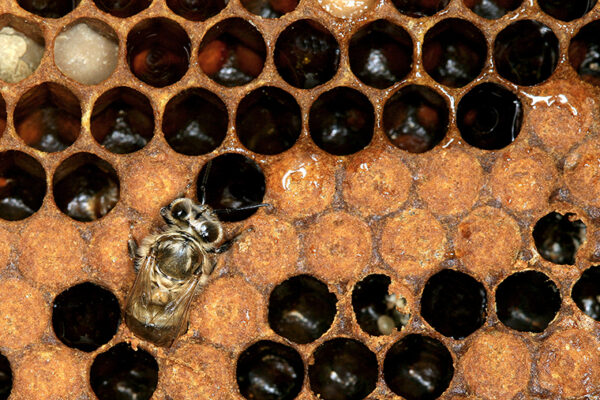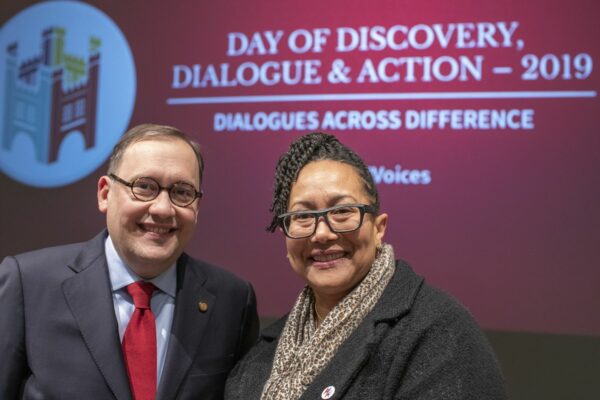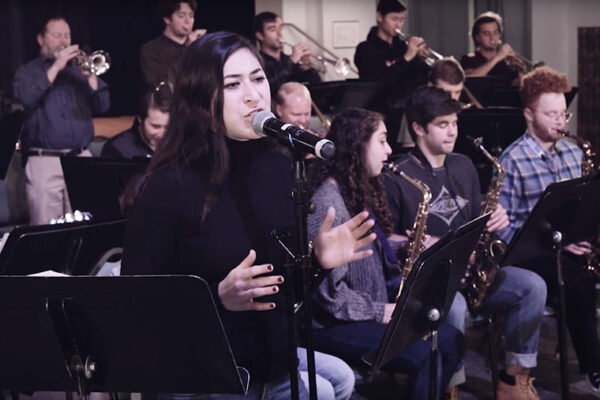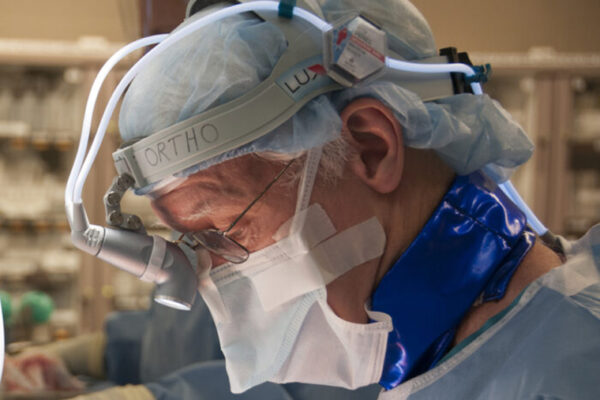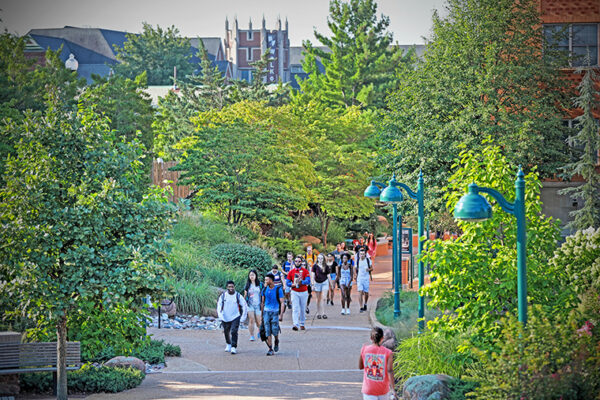Earning a bee’s wings
New research from Washington University in St. Louis shows that honey bees (Apis mellifera) develop different scent profiles as they age, and the gatekeeper bees at the hive’s door respond differently to returning foragers than they do when they encounter younger bees who have never ventured out before.
Center for the Study of Race, Ethnicity & Equity created
During remarks today at Washington University in St. Louis’ fifth annual Day of Discovery, Dialogue & Action, Chancellor-elect Andrew D. Martin announced the creation of a universitywide Center for the Study of Race, Ethnicity & Equity.
Video: ‘Angels in America’
A light flashes. A wing rustles. A feather floats gently to the floor. Tony Kushner’s “Angels in America” features some of the most indelible images in American theater. From Feb. 22 to March 3, the Performing Arts Department in Arts & Sciences will stage Kushner’s epic drama for six performances in Edison Theatre.
Jazz Band performs ‘Só Danço Samba’
Senior Hannah Gilberstadt leads the Jazz Band at Washington University through a rendition of Antonio Carlos Jobim’s 1962 classic “Só Danço Samba” (“I Only Dance Samba”). The Brazilian composer was among the 20th century’s most influential songwriters, and a pioneer of the bossa nova style.
For adult scoliosis, surgery, other treatments are viable options
A School of Medicine study of adults with lumbar scoliosis and found that the most important factor in determining whether to do surgery is the extent of a patient’s disability due to his or her spinal deformity, as well as how much that disability interferes with day-to-day life.
When a defect might be beneficial
Rohan Mishra, assistant professor of mechanical engineering & materials science in the McKelvey School of Engineering, led a widespread team of researchers — including at Washington University, at Oak Ridge National Laboratory in Tennessee and at the University of Missouri-Columbia — that studied the structure and properties of the commonly occurring planar defects at the atomic scale, which spans only a few tenths of a nanometer.
Pottery reveals America’s first social media networks
Long before Snapchat, Instagram, Facebook and even MySpace, early Mississippian Mound cultures in America’s southern Appalachian Mountains shared artistic trends and technologies across regional networks that functioned in similar ways as modern social media, suggests new research from Washington University in St. Louis.
University launches grants for low-income students
Washington University in St. Louis will introduce two pilot grants to help low-income first-year students buy college necessities. They include a $500 grant to cover or offset the cost of a computer and a $1,500 startup grant to cover necessities such as books, winter clothing and housing supplies. The grants are for first-year students entering in fall 2019 from families with less than $75,000 in family income or who are receiving a federal Pell Grant.
University diversity team works to align ‘our values and our reality’
Four campus leaders — Adrienne Davis, Emelyn dela Peña, Nicole Hudson and Sherree Wilson — have joined forces to strengthen diversity and inclusion initiatives across campuses and populations. It’s a new effort and one that is unusual among universities. The leaders will speak this week at the Day of Discovery, Dialogue & Action.
WashU Expert: Nigerian presidential vote of ‘hope and consequence’
A Washington University in St. Louis expert in African policy says Nigeria’s upcoming presidential vote is a consequential event, one that will determine critical steps forward for Africa’s most populous country and largest economy.
View More Stories
